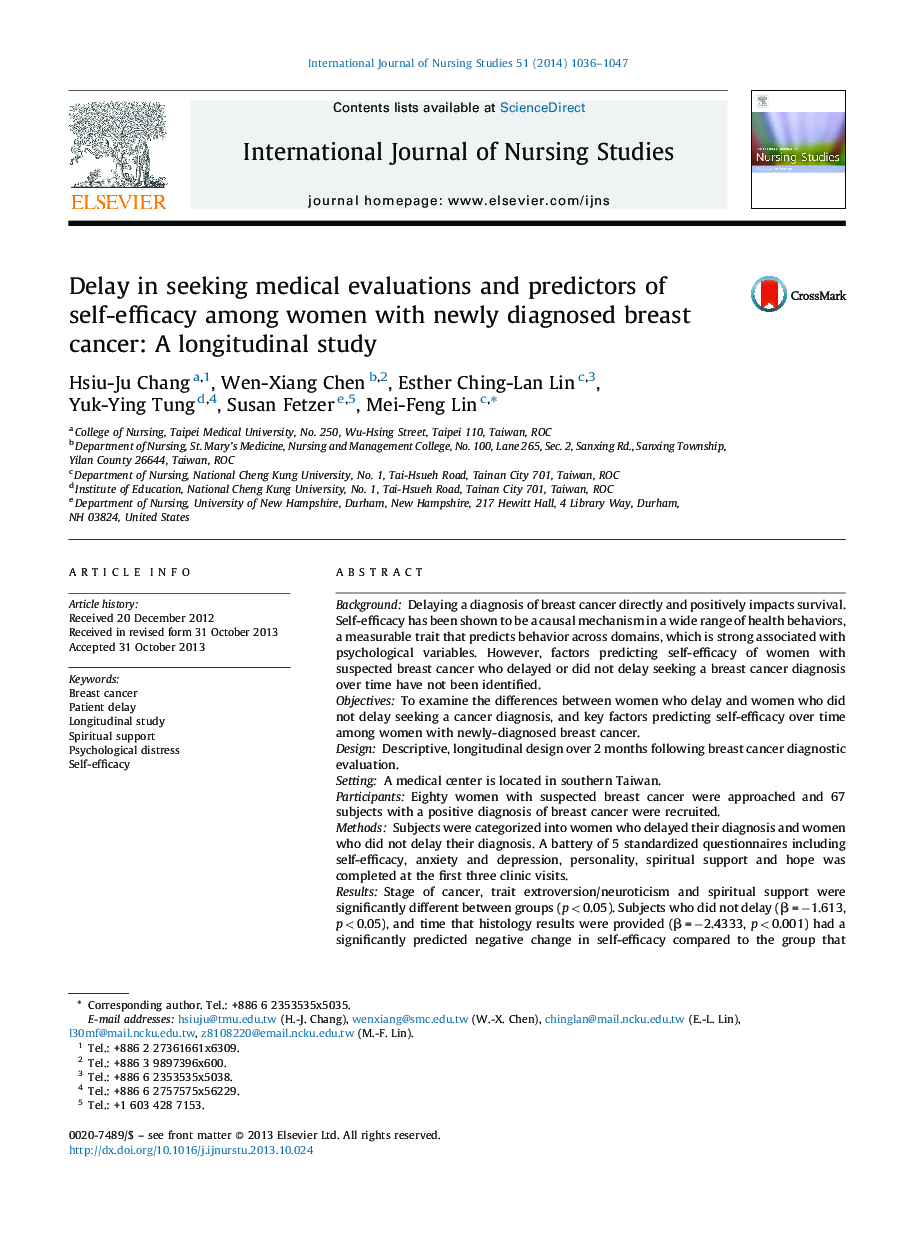| Article ID | Journal | Published Year | Pages | File Type |
|---|---|---|---|---|
| 1076354 | International Journal of Nursing Studies | 2014 | 12 Pages |
BackgroundDelaying a diagnosis of breast cancer directly and positively impacts survival. Self-efficacy has been shown to be a causal mechanism in a wide range of health behaviors, a measurable trait that predicts behavior across domains, which is strong associated with psychological variables. However, factors predicting self-efficacy of women with suspected breast cancer who delayed or did not delay seeking a breast cancer diagnosis over time have not been identified.ObjectivesTo examine the differences between women who delay and women who did not delay seeking a cancer diagnosis, and key factors predicting self-efficacy over time among women with newly-diagnosed breast cancer.DesignDescriptive, longitudinal design over 2 months following breast cancer diagnostic evaluation.SettingA medical center is located in southern Taiwan.ParticipantsEighty women with suspected breast cancer were approached and 67 subjects with a positive diagnosis of breast cancer were recruited.MethodsSubjects were categorized into women who delayed their diagnosis and women who did not delay their diagnosis. A battery of 5 standardized questionnaires including self-efficacy, anxiety and depression, personality, spiritual support and hope was completed at the first three clinic visits.ResultsStage of cancer, trait extroversion/neuroticism and spiritual support were significantly different between groups (p < 0.05). Subjects who did not delay (β = −1.613, p < 0.05), and time that histology results were provided (β = −2.4333, p < 0.001) had a significantly predicted negative change in self-efficacy compared to the group that delayed. Hope at the first clinic visit contributed to the change in self-efficacy over time (β = 0.391, p < 0.001).ConclusionsPersonal factors affecting a woman's delay in obtaining medical assessment of breast cancer confirmation. Hope impacts self-efficacy of women with suspected breast cancer and interventions to enhance hope during the early stages of breast cancer evaluation require further study.
